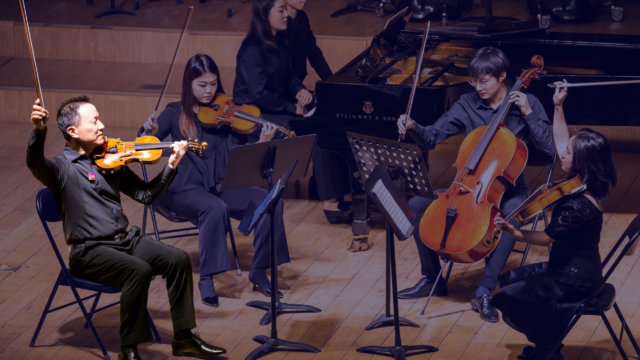It’s About Time

Women have made great strides over the past several decades at orchestras as orchestral musicians. However, the number of women in leadership positions, especially as music directors, still lags. But things are improving and there is reason for optimism.
By Jennifer Melick
The good news: more women are getting high-profile jobs conducting orchestras. The bad news: it’s not yet time to retire the phrase “glass ceiling” for once and for all. Will we get there, and if so, when?
In 2016, a ten-year-old violinist named Madeline de Geest went to a St. Louis Symphony Youth Orchestra concert led by Gemma New, who had just been appointed the St. Louis Symphony’s resident conductor. De Geest, enthralled, came backstage after the performance to ask for an autograph, and New gave the young musician her conducting baton. In 2017, New invited De Geest to a St. Louis Symphony Youth Orchestra rehearsal, and De Geest brought her violin and music folder. New commented at the time in the St. Louis Symphony’s blog, “She has so much energy and potential. She reminded me of myself when I was that age.” Since then, De Geest joined the SLSYO as one of its youngest musicians, and New’s profile has continued to rise. In addition to her St. Louis position, which concluded in May, New is now principal guest conductor at the Dallas Symphony Orchestra, the first woman to hold that title there; serves as music director of Canada’s Hamilton Philharmonic Orchestra; and has a full slate of guest conducting engagements.
“Fifty years ago, it was very rare that you would have a female conductor,” New told me recently. “So to get the experience, to be at a level where it’s comfortable, that is going to take time. You don’t want to push anyone into a situation, but you want to make sure that the opportunity—depending on the level—is equal. In St. Louis, there is a boy, Logan, I think he must be eleven or ten. He said he was really inspired by a St. Louis Symphony Orchestra concert and wanted to become a conductor. He comes to so many of the rehearsals, he has scores, he always asks questions. He’s been conducting at a high school now. I’m really proud of Madeline and Logan. It’s very inspiring. I like to welcome everyone to the table. When I relate to someone and have a strong relationship with them, it’s because we have a kindred personality—it’s not because of their gender.”
Article Topics:
Related
Related
-
Learn | Equity, Diversity & Inclusion
Strategic Social Media for Today’s Orchestras
-
Learn | Equity, Diversity & Inclusion
Discover the Power of Inclusion in Orchestra Culture
-
Learn | Equity, Diversity & Inclusion Member-only Content
Discover the Power of Inclusion in Orchestra Culture
Become a member
Thank you for your interest in the League of American Orchestras! We are dedicated to advancing the orchestral experience for all.
Join Now
